In reality, ensuring food safety (FS) in corporate kitchens plays a particularly important role, requiring management agencies and functional sectors to pay attention and focus on inspection, supervision, and post-inspection to prevent and minimize FHS incidents, and to avoid food poisoning.
Together with the Food Safety Inspection Team chaired by the Department of Health , in coordination with the Provincial Labor Federation, the Department of Industry and Trade, and the Provincial Industrial Park Management Board, they conducted inspections at a number of enterprises operating collective kitchens and providing ready-to-eat meals in Gia Vien and Yen Khanh districts and found that food safety was taken seriously by enterprises, in accordance with the provisions of the Food Safety Law.
Checking the collective kitchen of Excel Vietnam Garment Company Limited, Yen Ninh town (Yen Khanh district), where more than 1,400 workers are regularly provided with lunch at the price of 20,000 VND/meal. Through the inspection, it was found that the collective kitchen area has an area of about 1,000 m2, divided into separate areas suitable for the scale of service, such as the preliminary processing area, processing area, food distribution area, dry food storage area and 2 dining rooms; the walls and floors are tiled with bright, clean ceramic tiles.
The areas are neatly arranged and clean. The dining room is equipped with air conditioning, ceiling fans, and ventilation fans. Meals are divided and contained in stainless steel trays, with trolleys and shelves for the trays after dividing the food. The facility is equipped with refrigerators and freezers for food preservation; there is a boiler system and an electric cabinet for cooking food. The company has 2 contracts with food suppliers (with accompanying legal documents); there are retail invoices and books to record daily imports.
Through rapid testing of organic phosphorus pesticides on Malabar spinach and water spinach, the results were negative (passed); starch reaction test on food trays, the results were satisfactory. The inspection team acknowledged the company's efforts in ensuring meals for more than 1,400 workers. It is recommended that the company continue to maintain the hygiene of processing areas and equipment, and practice personal hygiene of direct processors. Control the time, have appropriate preservation measures for food from the time it is finished processing until it is served.
Ms. Tran Thi Minh, a worker at Excel Vietnam Garment Company Limited, said: We are very reassured and excited that in the current economic situation, the company still supports us with nutritious, delicious, and safe shift meals. This is also the belief and motivation for us to commit to the company for a long time. We hope that the company will maintain quality and hygienic shift meals so that employees are healthy enough to work and accompany the company to continue to develop.
As a company specializing in the field of food service business, providing industrial meals, An Dai Duong Trading and Service Joint Stock Company, Thuong Mo Commune, Dan Phuong District ( Hanoi City) has the activity of processing ready-made meals at the collective kitchen of Guang Halin Shoes Processing Company Limited, Gia Phu Industrial Park, Gia Phu Commune (Gia Vien District). Every day, An Dai Duong Trading and Service Joint Stock Company provides 400-430 meals for workers of Guang Halin Shoes Processing Company Limited, at a price of 20,000 VND/meal.

Mr. Tran Van Quang, Director of An Dai Duong Trading and Service Joint Stock Company, said: The company has been operating in the field of industrial meal processing for more than 5 years. Currently, the company is providing ready-to-eat meals for 26 factories in 7 northern provinces and cities, with about 23-25 thousand meals/day. In Ninh Binh province, the company is providing for 8 enterprises in Gia Vien and Hoa Lu districts and Ninh Binh city, with about 5 thousand meals/day.
According to Mr. Quang, in order to maintain the market and develop further, the Company always puts food safety as the top priority. The Company signs a commitment to the source of input food materials with reputable production facilities and supplies them in large quantities. The menu is built weekly, ensuring nutritional balance, changing dishes regularly so that workers can eat well, eat well, have enough nutrients, and improve their health to work. In particular, the Company strictly implements the storage of food samples after processing, ensuring the determination of the cause if food poisoning occurs...
Comrade Pham Thi Phuong Hanh, Director of the Department of Health, Head of the Food Safety Inspection Team of the Department of Health, said: Due to the crowded working environment, the organization and management of collective meals in enterprises is very important and necessary. Recently, the Department of Health has directed the Provincial Food Safety and Hygiene Sub-Department to coordinate with relevant agencies and the initiative of enterprises in the province to pay attention to and focus on the quality of meals to improve the health of workers, because that is the condition to improve productivity, product quality, and build sustainable business development.
The Inspection Team of the Department of Health coordinated with relevant units to conduct inspections at 6 enterprises operating collective kitchens and providing ready-to-eat meals in Gia Vien and Yen Khanh districts with the aim of evaluating compliance with food safety laws at enterprises operating collective kitchens and providing ready-to-eat meals; promptly detecting, preventing, and handling violations of food safety; and correcting processing and business activities at establishments in accordance with the law.
In fact, through inspection, all collective kitchens met the requirements and basically complied with all the regulations of the law on food safety. There were full certificates of ensuring food hygiene and safety conditions, health certificates, certificates of food safety knowledge of managers and people directly in contact with food; there was a food delivery book, a three-step food inspection book, a food sample storage book with recorded information and food sample storage according to regulations...
However, there are still some small-scale collective kitchens, with requirements on food safety conditions such as means, processing tools, preservation, and transportation time still at a certain level. During the inspection, the Delegation also recommended that the establishments overcome some existing problems and limitations such as: Hygiene issues in food preparation and processing areas, equipment and tools, good personal hygiene practices of those directly processing food. Signing contracts with food suppliers with full legal documents on food safety. Appropriate preservation measures are needed for foods after processing...
The collective kitchen at the enterprise is the place that provides meals for a large group of people and is directly related to the health of many people at the same time, so strict implementation of food safety regulations is necessary. Most enterprises in the province are always aware that the health of workers is the "health" of the enterprise, thereby paying attention to selecting, preparing, and processing food to improve the quality of meals, ensuring health, creating motivation for workers to work with peace of mind and contribute to the enterprise.
Article and photos: Hanh Chi
Source




![[Photo] Joy on the new Phong Chau bridge](https://vphoto.vietnam.vn/thumb/1200x675/vietnam/resource/IMAGE/2025/9/28/b00322b29c8043fbb8b6844fdd6c78ea)
![[Photo] High-ranking delegation of the Russian State Duma visits President Ho Chi Minh's Mausoleum](https://vphoto.vietnam.vn/thumb/1200x675/vietnam/resource/IMAGE/2025/9/28/c6dfd505d79b460a93752e48882e8f7e)
![[Photo] The 4th meeting of the Inter-Parliamentary Cooperation Committee between the National Assembly of Vietnam and the State Duma of Russia](https://vphoto.vietnam.vn/thumb/1200x675/vietnam/resource/IMAGE/2025/9/28/9f9e84a38675449aa9c08b391e153183)



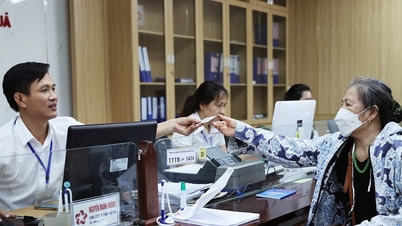

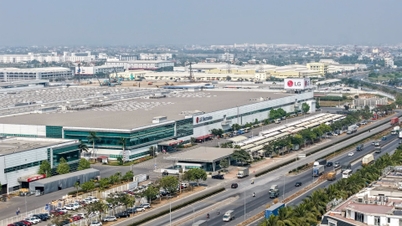

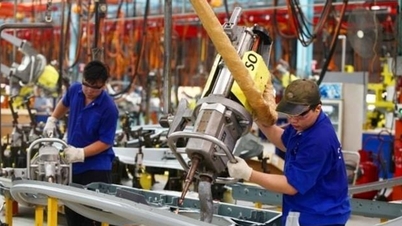

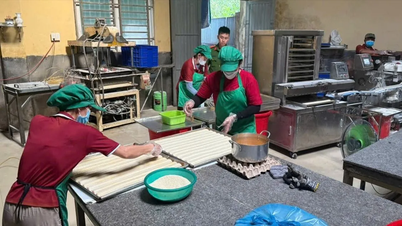

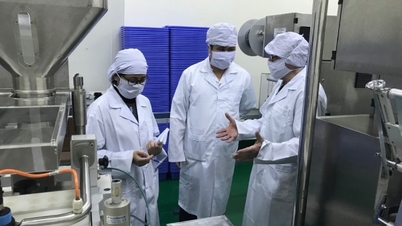



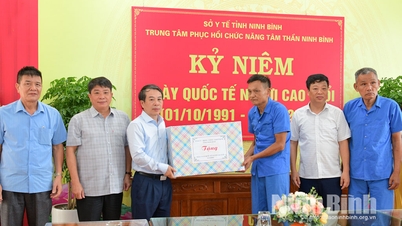











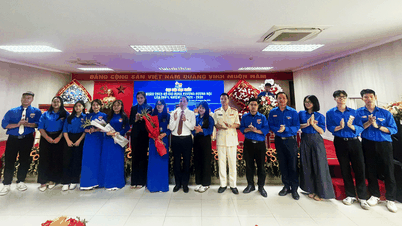
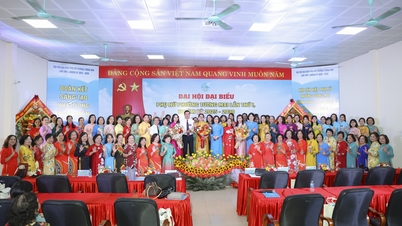
























































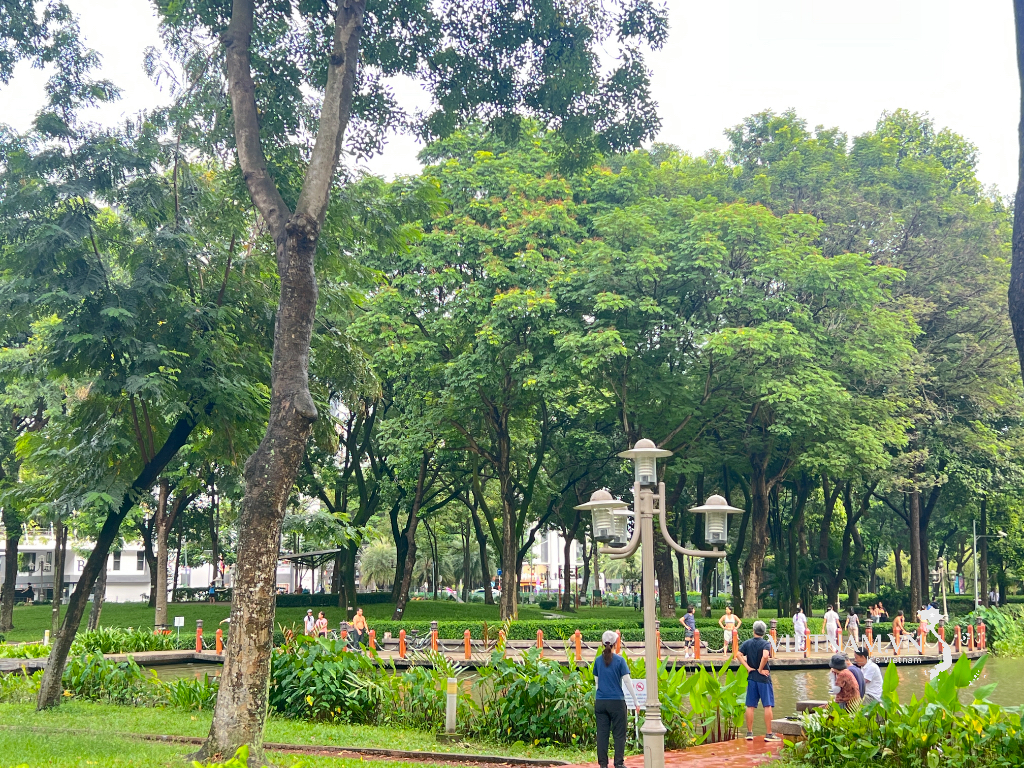

Comment (0)